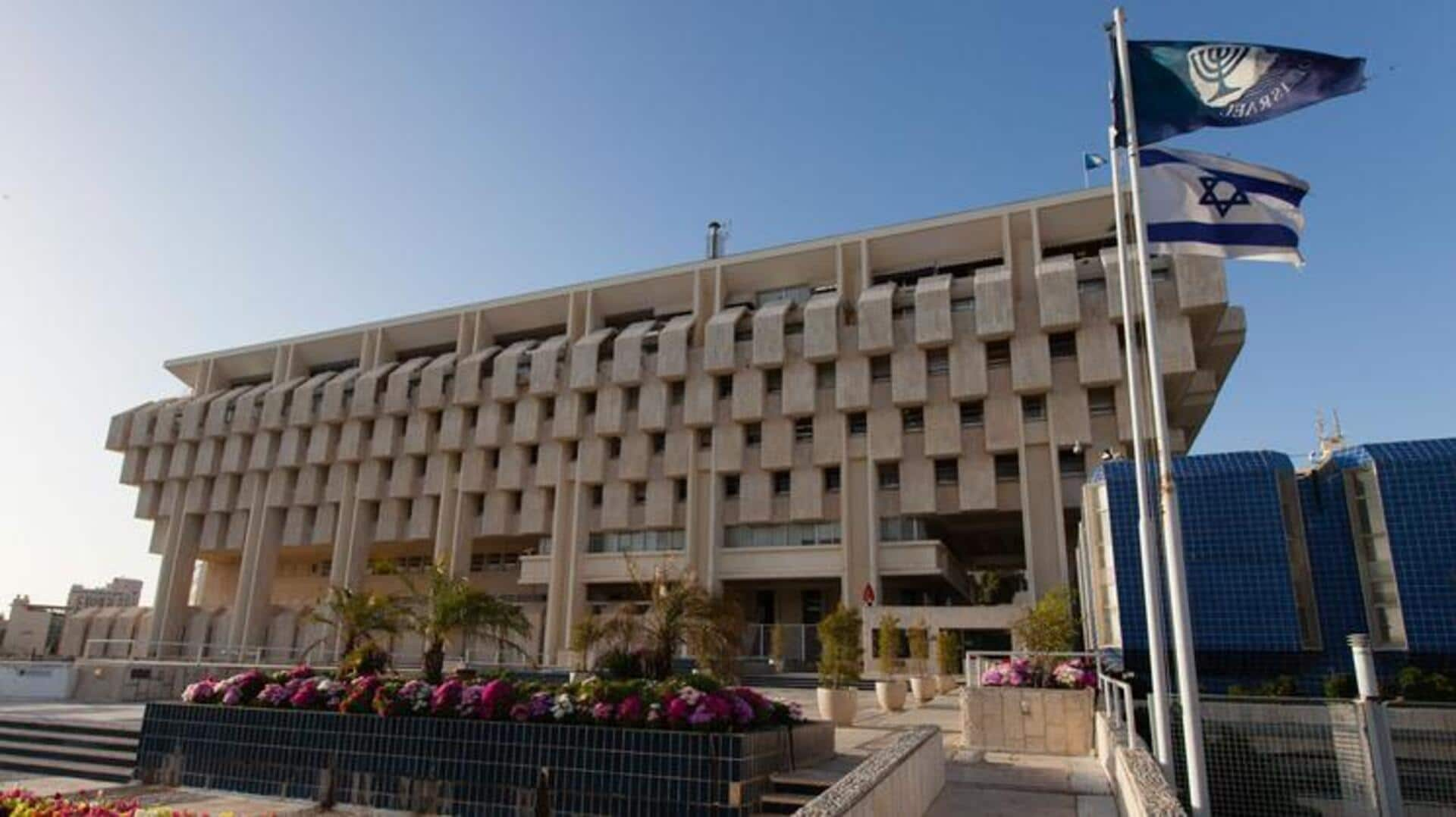
Bank of Israel to sell $30bn forex to stabilize shekel
What's the story
The Bank of Israel has announced its intention to sell up to $30 billion in foreign currency in the open market, Reuters reported.
This marks the central bank's first-ever foreign exchange sale, aiming to stabilize the financial situation amid Israel's ongoing conflict with Hamas in Gaza.
The news was well-received by the market, as the shekel bounced back from significant initial declines. At the time of writing, shekel traded at 3.91 per dollar.
Details
Providing liquidity through SWAP mechanisms
The bank also plans to step in during the coming period to reduce volatility in the shekel exchange rate and ensure essential liquidity for smooth market operations.
In addition to the forex sale, the Bank of Israel is also committing to provide liquidity through SWAP mechanisms, allocating up to $15 billion.
The central bank is keeping a close eye on the situation, stating that it will monitor developments across all markets and use available tools as needed.
What Next?
Shekel's weakness and government's judicial overhaul plan
The shekel has been struggling this year, showing a 10% decline against the United States currency in 2023.
This drop was mainly due to the government's judicial overhaul plan, which significantly limited foreign investment.
To tackle these challenges, Israel has built up forex reserves of over $200 billion through forex purchases since 2008.
This strategy aimed to keep the shekel from strengthening too much, protecting exporters, especially with the increase in foreign inflows to the country's tech sector.
Insights
Bank of Israel's intervention history
The last time the Bank of Israel intervened was in January 2022.
Just last month, Bank of Israel Governor Amir Yaron told Reuters that although the shekel's significant depreciation contributed to rising inflation, there was no need for intervention as there were no clear market failures.
The bank's current decision to sell forex and provide liquidity through SWAP mechanisms marks a major shift in its approach to managing the shekel's value.
Facts
Impact of Israel-Gaza conflict on market sentiment
The ongoing conflict between Israel and Palestinian militants in Gaza has taken a toll on market sentiment.
After a deadly attack by Hamas, which led to the deaths of 700 Israelis and the kidnapping of dozens more, Israeli stock and bond prices fell by 7%.
Many businesses also remained closed on October 8. The Bank of Israel's forex sale and liquidity provision are vital steps in stabilizing the financial situation during these difficult times.